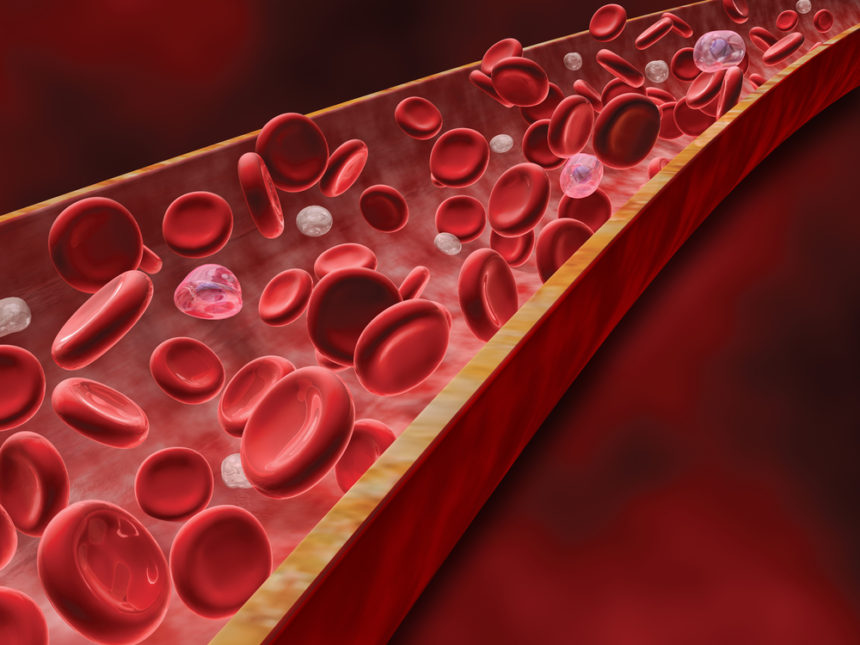This post was originally published on this site
A simple blood test – which measures antibodies against certain tumor proteins, or antigens — may identify breast cancer up to five years before clinical signs of cancer are evident, but more research is needed to improve the test’s accuracy, a pilot study reports.
Screening for a panel of nine tumor-associated antigens identified breast cancer in 39% of patients, while correctly identifying 79% of samples without breast cancer.
The findings were recently presented at the 2019 National Cancer Research Institute (NCRI) Cancer Conference, held Nov. 3–5 in Glasgow, Scotland. Daniyah Alfattani with the University of Nottingham presented the results in the talk, “Clinical Utility of Autoantibodies in Early Detection of Breast Cancer.”
Because cancer cells carry several mutations in their DNA, they normally produce proteins that are different from those of healthy cells, allowing the immune system to recognize them as foreign. Cancer proteins that are able to induce an immune response are called tumor-associated antigens.
Antibodies targeting tumor-associated antigens are good indicators of the presence of cancer, and may be found in cancer patients up to five years before their diagnosis. This means that testing for these antibodies could help diagnose patients earlier, allowing them to be treated at a stage where the cancer is likely curable.
Researchers investigated whether these antibodies could be measured in a blood sample to accurately detect breast cancer. They analyzed blood samples from 90 women at the time they were diagnosed with breast cancer, and from 90 patients without the disease (control group).
The team, part of the U.K.’s Centre of Excellence for Autoimmunity in Cancer (CEAC), screened the samples for 40 tumor-associated antigens known to be involved in breast cancer, and for 27 of these proteins that are not linked with the disease.
They then identified three panels of antibodies against these tumor-associated antigens that they could use to detect breast cancer. The panels contained five, seven, and nine antibodies; the more antibodies the test measured, the more accurate it became at detecting breast cancer.
The panel of five correctly identified 29% of breast cancer patients, as well as 84% of control patients. Increasing the panel to seven or nine antibodies identified 35% and 39% of the breast cancer patients, respectively, and both panels identified 79% of the control samples.
“The results of our study showed that breast cancer does induce autoantibodies against panels of specific tumour-associated antigens. We were able to detect cancer with reasonable accuracy by identifying these autoantibodies in the blood,” Alfattani said a press release.
“We need to develop and further validate this test. However, these results are encouraging and indicate that it’s possible to detect a signal for early breast cancer,” Alfattani added. “Once we have improved the accuracy of the test, then it opens the possibility of using a simple blood test to improve early detection of the disease.”
Researchers are now testing the nine-antibody panel in blood samples from 800 patients. They expect that the test’s accuracy will increase with a larger sample. Researchers estimate that with a fully-funded development program, the blood test could become available in the clinic in about four or five years.
“A blood test for early breast cancer detection would be cost effective, which would be of particular value in low and middle income countries. It would also be an easier screening method to implement compared to current methods, such as mammography,” Alfattani said.
“Early diagnosis using simple, non-invasive ways of detecting the first signs of cancer is a key strategic priority for NCRI and something we’d all like to see working in practice,” and possibly for other cancers, including lung cancer, said Iain Frame, the CEO of NCRI. “It’s obviously early days but we look forward to seeing the results from the larger group of patients that are now being investigated.”
The researchers at the University of Nottingham are also developing similar tests for pancreatic, colorectal, and liver cancers, all solid tumors. A randomized trial in Scotland tested a similar screening method (EarlyCDT-Lung) in 12,000 smokers at risk of lung cancer; cancers detected as a result were reported to be mostly in early stages.
The post Blood Test May Identify Breast Cancer Years Before Symptoms Appear, Pilot Study Suggests appeared first on Breast Cancer News.
The post Blood Test May Identify Breast Cancer Years Before Symptoms Appear, Pilot Study Suggests appeared first on BioNewsFeeds.


